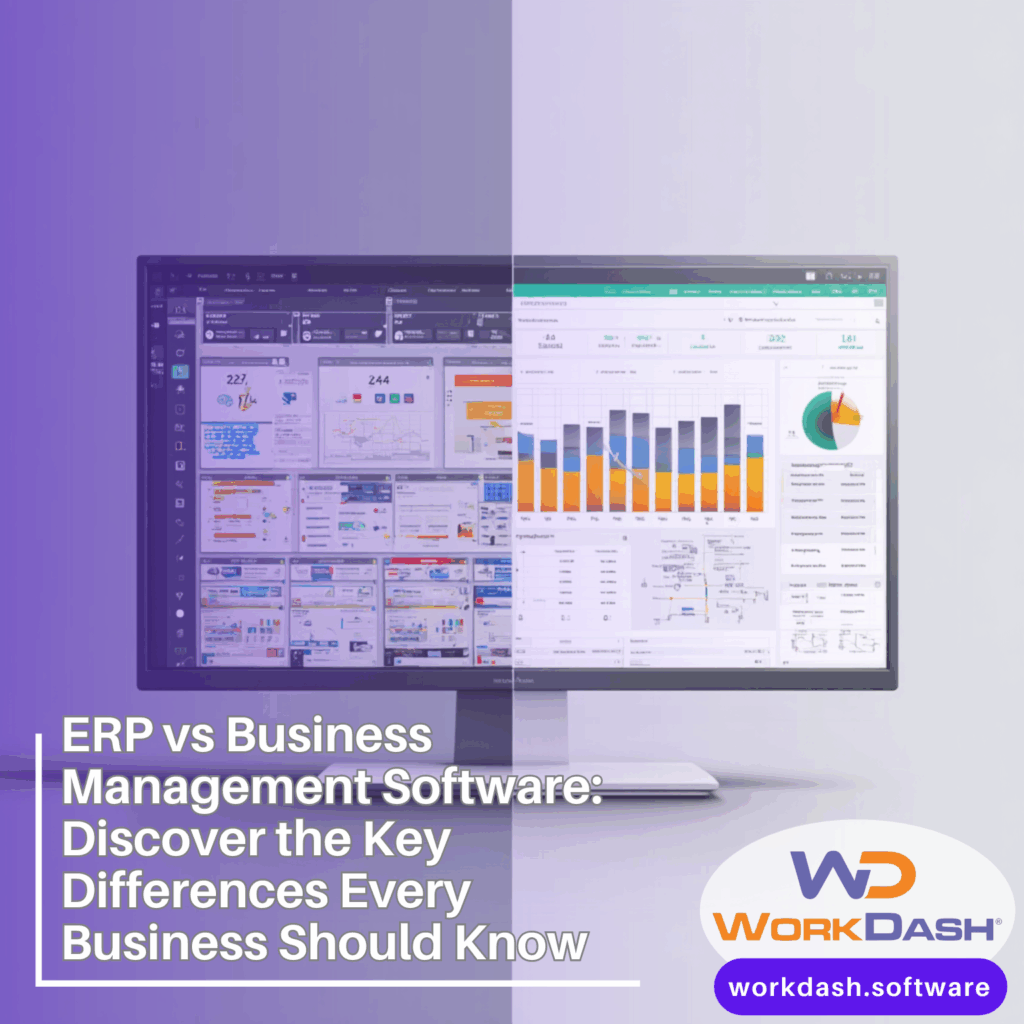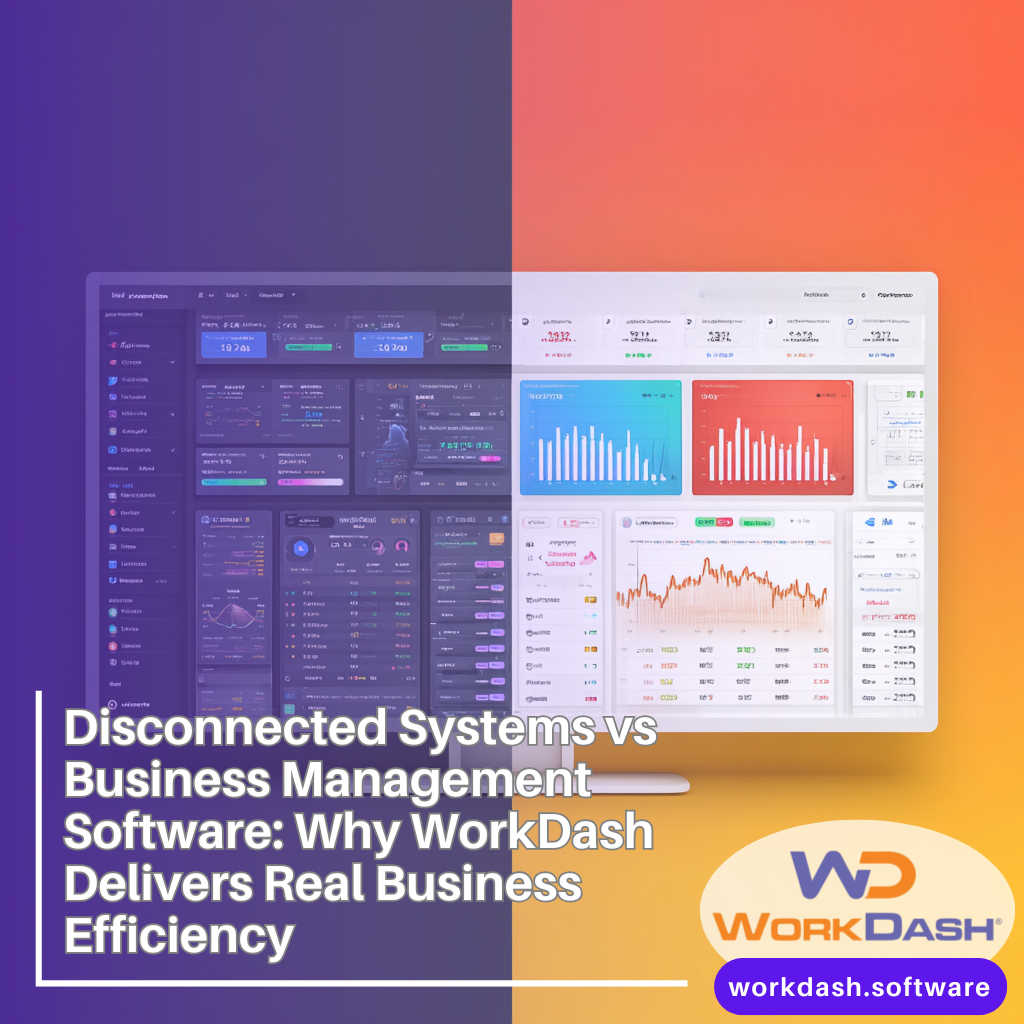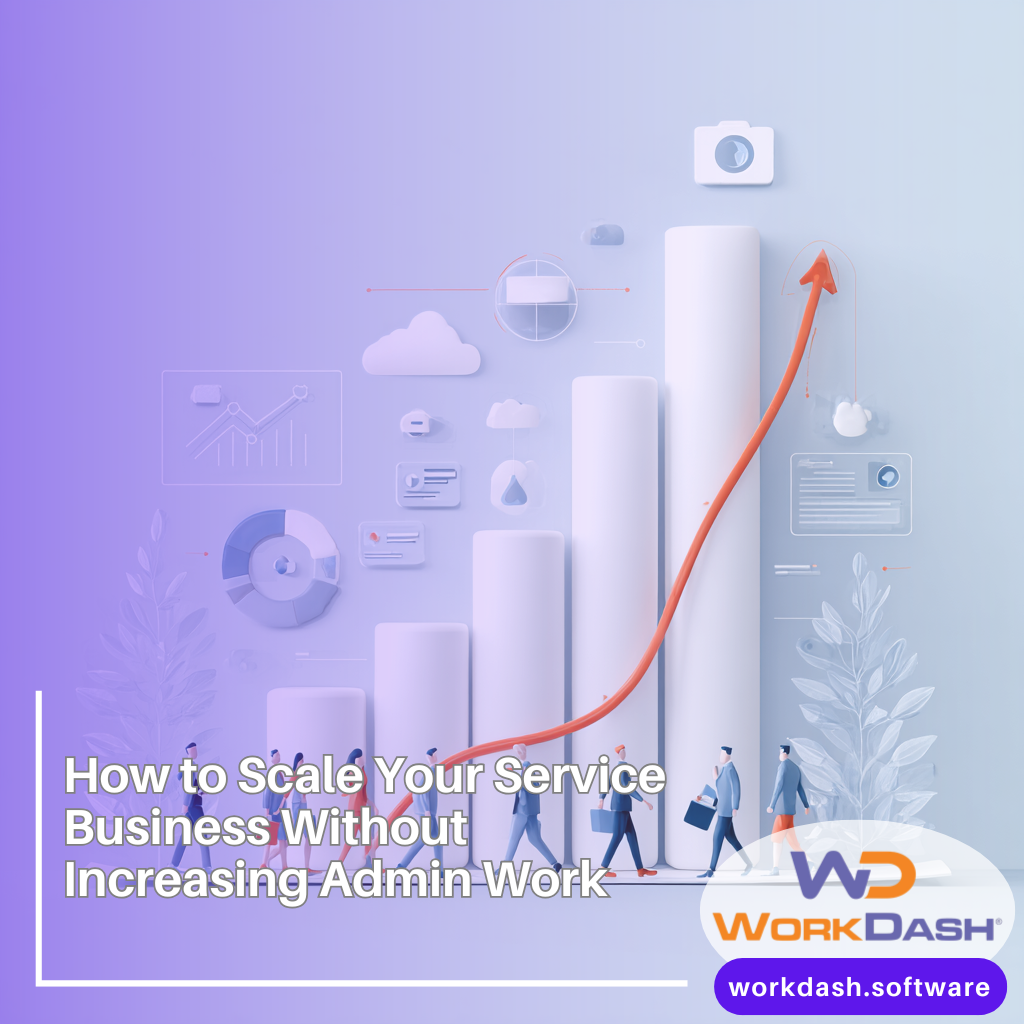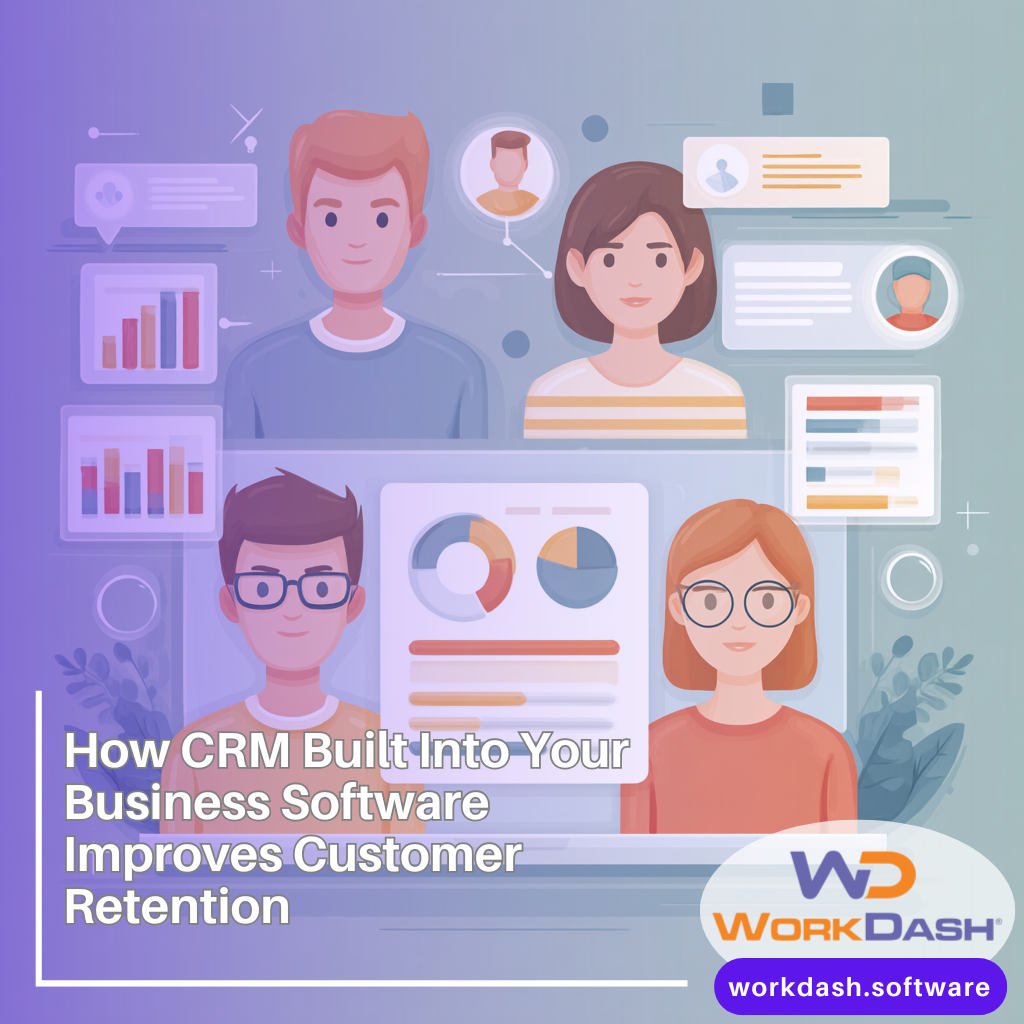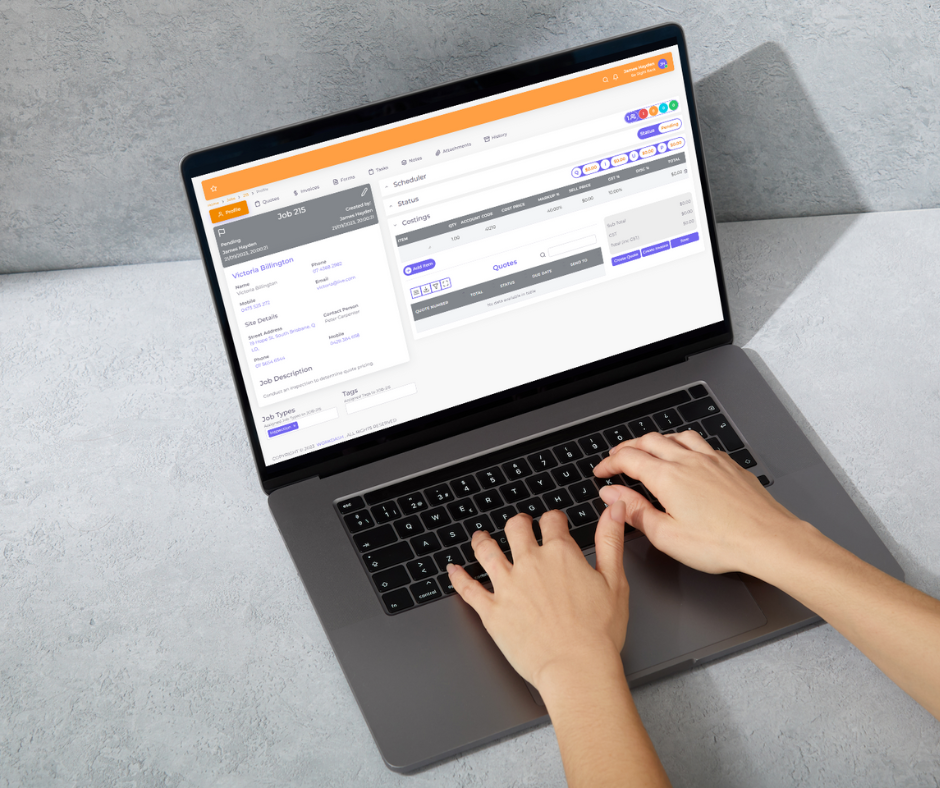Table of Contents
ERP vs Business Management Software: Discover the Key Differences Every Business Should Know
In today’s rapidly changing business environment, software systems are essential for running efficient business operations. Yet many business owners struggle to understand the differences between ERP systems and business management software. Both solutions claim to streamline business processes across departments, but they are not the same.
This article explores business management software vs ERP, explains the key differences, and helps you decide which system is the best solution for your business needs. If you’re wondering whether an ERP system is right for your business or whether business management software may be the smarter choice, this guide will give you the clarity you need. We’ll also show how WorkDash provides a flexible, powerful business management system designed specifically for small businesses and tradies—without the complexity of an ERP.
Outline of the Article
What Is an ERP System?
What Is Business Management Software?
ERP vs Business Management Software: Why the Confusion?
Key Differences Between ERP and Business Management Software
How ERP Systems Work Across Departments
Why Business Management Software May Be Right for Your Business
The Complexity of an ERP vs the Simplicity of WorkDash
ERP and CRM: Understanding Integration in Modern Business
Future of Business Management: Cloud-Based vs Traditional Software
Choosing the Best Solution for Your Business
What’s an Enterprise Resource Planning (ERP) System?
An ERP system, or Enterprise Resource Planning system, is a comprehensive software system that integrates business processes across the entire business. ERP systems are built to unify business functions into a single database and provide advanced ERP solutions for financial management, inventory management, supply chain management, human resources, and project management.
An ERP system provides powerful management tools and automation features to handle complex enterprise-level business needs. ERP software is designed to support large organisations with multiple departments that require extensive integration and management and analysis of business data.
However, implementing an ERP system is a large undertaking. ERP implementation requires time, resources, and a commitment to adapt business processes to fit the system. While ERP systems also deliver significant value, the cost and complexity of an ERP system may be too much for small businesses or service providers focused on specific business goals.
What’s Business Management Software?
Business management software is designed for businesses of all sizes that need management tools without the overhead of ERP solutions. Unlike ERP software, business management software streamlines business operations by focusing on key business functions like job scheduling, invoicing, client communication, and resource planning—without forcing businesses to adapt to rigid ERP systems.
Business management software may include features such as project management, customer relationship management, order management, and inventory management, but in a way that is simplified and tailored to specific business needs. Software like WorkDash is a great example of a modern business management system built to transform your business without unnecessary complexity.
The goal of business management software is to help businesses run their day-to-day operations, improve efficiency, and align with specific business goals, while staying adaptable to changing business needs.
Business Management Software vs ERP: Why the Confusion?
The confusion around ERP vs business management software comes from overlapping terminology. ERP solutions are often presented as the ultimate software system, but not every business requires such depth. Many business owners hear “ERP and business management software” and assume they are the same, but there are differences between ERP and business management software that matter.
ERP systems automate core business activities across departments and are comprehensive ERP platforms designed for large enterprises. Business management software, on the other hand, is designed to be agile, scalable, and easier to implement.
When considering ERP vs business management software, it’s important to align your choice with business needs, business objectives, and specific business goals.
Key Differences Between ERP and Business Management Software
There are clear key differences between ERP systems and business management software:
Scope: An ERP system allows integration of all business functions into a single system for your business, while business management software focuses on core business activities relevant to small businesses.
Complexity: ERP systems are complex and often require implementing ERP processes across departments. Business management software is designed to simplify and improve efficiency without unnecessary overhead.
Flexibility: ERP systems and traditional business software often require businesses to adapt. Business management software streamlines operations by adapting to various business requirements.
Cost: Implementing an ERP system may require higher investment. Business management software like WorkDash is cost-effective and better aligned with growing business needs.
Understanding the key differences between ERP systems and business management platforms helps businesses choose the best solution for your business.
How ERP Systems Work Across Departments
ERP systems are built to handle business processes across multiple departments. An ERP system may include inventory management, supply chain, human resources, financial management, and customer relationship management.
An ERP system provides integration across departments, allowing large enterprises to unify business data, reduce duplication, and gain management and analysis insights. ERP systems also enable order management, supply chain coordination, and business transformation at scale.
However, implementing ERP is often more complex than implementing a business management system. Implementing an ERP system requires aligning business functions into a single software solution, which can lead to challenges for small businesses.
Why Business Management Software May Be Right for Your Business
For many small businesses, service providers, and tradies, business management software is the best solution for your business needs. Business management software streamlines specific business operations, supports project management, and allows integration with accounting software or CRM.
Unlike ERP systems that require adapting the entire business to fit ERP software, business management software is designed to meet specific business needs. Platforms like WorkDash provide a business management system that focuses on scheduling, invoicing, client communication, and productivity—helping businesses achieve business growth without unnecessary complexity.
If your goal is to run your business more efficiently, improve day-to-day operations, and achieve specific business goals, business management software may be the solution for your business.
The Complexity of an ERP vs the Simplicity of WorkDash
Implementing an ERP system can be overwhelming. The complexity of an ERP means significant investment in training, infrastructure, and ongoing management. ERP systems are best for enterprises with entire business structures spanning supply chain, human resources, and financial management across departments.
By contrast, WorkDash simplifies operations by providing business software that meets changing business needs without the complexity of an ERP. It is designed for small businesses, tradies, and service providers who want to transform your business with efficient, user-friendly management tools.
WorkDash represents the future of business management by providing software solutions that streamline operations without forcing businesses into unnecessary business transformation.
ERP and Customer Relationship Management (CRM): Understanding Integration in Modern Business
ERP and CRM are often linked together, but they serve different purposes. ERP systems focus on enterprise resource planning, covering core business functions like supply chain and financial management. Customer relationship management focuses on client communication, sales, and managing customer data.
ERP and CRM can be integrated into ERP software, but this adds more complexity. Business management software, however, often includes CRM features as part of a simplified system for your business. WorkDash combines job scheduling, invoicing, and client communication to give small businesses both management functions and customer management without needing advanced ERP.
This shows how ERP and business management software approach integration differently, depending on business objectives.
Future of Business Management: Cloud-Based vs Traditional Software
The future of business management lies in cloud-based ERP and business management systems. Traditional business software required heavy infrastructure and limited flexibility. Cloud-based ERP and business management software enable businesses to adapt to changing business needs, manage data in real-time, and access systems anywhere.
ERP systems and traditional business software are being replaced by cloud-based ERP and agile business management software. This shift ensures businesses can optimise operations, achieve business growth, and transform your business with modern tools.
Platforms like WorkDash represent the future of business management by providing software solutions that are simple, scalable, and designed for specific business needs.
Integrating Business Software with Accounting Software
Integrating WorkDash Software with accounting platforms significantly enhances operational efficiency by automating data flow between job management and financial systems. This seamless connection eliminates the need for double entry, reducing manual workload and minimizing the risk of human error in invoicing, payroll, and expense tracking. Real-time syncing ensures accurate financial records, faster reconciliation, and streamlined reporting—freeing up teams to focus on strategic tasks rather than administrative overhead.
_______________________________________________________________________________________
Choosing the Best Solution for Your Business
When it comes to ERP vs business management software, the best solution for your business depends on your size, business goals, and complexity. ERP systems automate core business functions across departments and are suited to large enterprises. Business management software like WorkDash is best for small businesses and service providers who need management tools tailored to day-to-day operations.
If you want a system that keeps your business running smoothly, improves efficiency, and reduces admin, WorkDash is the best solution for your business needs. Unlike ERP systems, it is a business management platform designed to deliver flexibility, efficiency, and simplicity.
✅ Key Takeaways
An ERP system integrates business processes across entire business departments, but its complexity may not be right for every business.
Business management software streamlines day-to-day operations, helps small businesses, and adapts to specific business goals.
There are key differences between ERP systems and business management software: complexity, scope, cost, and flexibility.
WorkDash provides a business management system that helps small businesses and tradies manage scheduling, invoicing, and client communication.
Cloud-based solutions represent the future of business management, replacing traditional software with flexible, scalable software systems.
Choosing between ERP and business management software depends on your business needs—WorkDash is often the best solution for service providers and small businesses.

